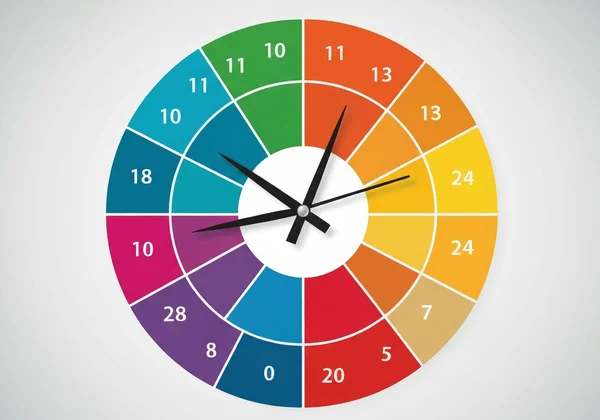LSAS Clinical Utility: Guide for Therapists & Researchers
November 20, 2025 | By Elara Donovan
Introduction: The Gold Standard: Why Professionals Rely on the Liebowitz Social Anxiety Scale
In the landscape of psychological assessment, few tools have achieved the "gold standard" status for evaluating social anxiety as the Liebowitz Social Anxiety Scale (LSAS). For therapists, researchers, and students in psychology, understanding its robust framework is essential for effective practice and inquiry. The assessment's clinical utility extends from initial screening to monitoring treatment progress, making it an indispensable instrument. What makes the Liebowitz Social Anxiety Scale the preferred choice for professionals? This guide delves into the scale's psychometric soundness, clinical applications, and research potential, demonstrating why it remains a cornerstone of social anxiety assessment. For those seeking a reliable and accessible version, you can explore the assessment on our platform.

Unpacking the Liebowitz Social Anxiety Scale (LSAS)
Before diving into its applications, a foundational understanding of the scale is crucial. Developed by Dr. Michael R. Liebowitz, this scale was designed to quantify the fear and avoidance associated with social interaction and performance situations. Its detailed structure provides a nuanced picture of an individual's experience, moving beyond a simple "shy" or "outgoing" dichotomy.
A Brief History and Purpose of the Scale
The scale was created to address the need for a comprehensive measure of social phobia, now more commonly known as social anxiety disorder. Its primary purpose is to assess the severity of social anxiety by examining specific situations that often trigger distress. Unlike broader anxiety measures, the instrument focuses exclusively on social contexts, giving clinicians and researchers a targeted and highly relevant diagnostic aid. This focus is what makes it a superior screening tool for identifying potential cases of social anxiety disorder.
Structure and Scoring: The 24-Item Framework
The scale is a 24-item questionnaire that evaluates two key dimensions for each social situation: fear and avoidance. For each item, the individual rates their level of fear on a 4-point Likert scale (0=none, 3=severe) and their level of avoidance on a similar scale (0=never, 3=usually). This dual-rating system is a significant strength, as it captures both the internal experience of anxiety and the external behavioral response. The total score, ranging from 0 to 144, provides a quantitative measure of severity, which is vital for score interpretation in a clinical setting. You can experience this framework firsthand with our free LSAS test.

LSAS Psychometric Properties: Validity and Reliability
For any assessment tool to be accepted in clinical and research settings, it must demonstrate strong psychometric properties. The Liebowitz Scale psychometrics are well-documented and consistently robust, which is a primary reason for its widespread adoption. Professionals trust this measure because it has been rigorously tested and proven to be a dependable measure.
Ensuring Consistency: Understanding Its Reliability
Reliability refers to the consistency of a measure. The scale has demonstrated excellent test-retest reliability, meaning that an individual's scores remain stable over time, assuming no significant intervention has occurred. It also shows high internal consistency, indicating that all 24 items work together cohesively to measure the single construct of social anxiety. This ensures that the results obtained are not due to random chance but are a stable reflection of the individual's condition.
Measuring What Matters: Its Validity Explained
Validity confirms that the scale measures what it claims to measure—in this case, social anxiety. The instrument has strong construct validity, correlating well with other established measures of social anxiety and showing weaker correlations with measures of unrelated conditions like depression. Its criterion validity is also high, as scores effectively differentiate between individuals diagnosed with social anxiety disorder and those without. This makes it an invaluable tool for accurate assessment and is central to its clinical utility.
Clinical Application: LSAS for Therapists and Practitioners
The true value of this tool is realized in its practical application. For mental health professionals, the scale is a versatile instrument that supports various stages of the therapeutic process. Its utility as one of the most effective social anxiety assessment tools cannot be overstated.
From Screening to Diagnosis: Initial Assessment with the Tool
During an initial consultation, the questionnaire serves as a powerful screening tool. It helps clinicians quickly gauge the severity of a client's social fears and avoidance behaviors. While it is not a standalone diagnostic tool, its scores provide a strong evidentiary basis for a potential Social Anxiety Disorder diagnosis according to DSM-5 or ICD-11 criteria. It helps differentiate clinical social anxiety from normative shyness, guiding the clinician toward an appropriate treatment plan.
Tracking Progress: Monitoring Treatment Outcomes with the Assessment
One of the most significant uses for the scale in clinical practice is monitoring treatment outcomes. By administering the scale at regular intervals—for instance, at the beginning, middle, and end of therapy—a therapist can quantitatively track a client's progress. A reduction in the LSAS score is a clear indicator of successful intervention, whether through cognitive-behavioral therapy (CBT), medication, or other modalities. This data-driven approach enhances accountability and allows for adjustments to the treatment plan as needed.
![]()
Navigating Comorbidity: Its Use in Complex Cases
Social anxiety disorder often co-occurs with other mental health conditions, such as depression or substance use disorders. In these complex cases, the scale helps isolate and quantify the social anxiety component of the client's presentation. This allows therapists to develop a more targeted and effective treatment strategy that addresses the unique interplay of symptoms, leading to better overall clinical practice.
The LSAS in Research: Advancing Social Anxiety Understanding
Beyond the clinic, the LSAS is a cornerstone of academic and pharmaceutical research. Its reliability and validity make it an ideal instrument for studies aiming to deepen our understanding of social anxiety. Researchers looking for a convenient way to administer the scale can use an online LSAS tool to streamline data collection.
Methodological Cornerstone: Its Use in Clinical Trials
In clinical trials for new psychotropic medications or psychotherapeutic techniques, this tool is frequently used as a primary outcome measure. Researchers rely on it to determine the efficacy of a new treatment compared to a placebo or an existing treatment. Its sensitivity to change makes it perfect for detecting even subtle improvements in social anxiety symptoms over the course of a trial.
Epidemiological Insights: Population-Level Studies
Epidemiological studies use the scale to estimate the prevalence of social anxiety disorder in the general population. These large-scale studies help public health officials understand the scope of the problem, identify at-risk populations, and allocate resources more effectively. The data gathered from the questionnaire informs public health policy and mental health awareness campaigns.
Leveraging Online Platforms for LSAS Research
Modern research increasingly relies on digital tools for data collection. Dedicated online platforms offer a tremendous advantage by providing a standardized, easily accessible version of the scale. This allows researchers to gather data from larger and more diverse samples than would be possible with traditional paper-and-pencil methods. Using a reliable LSAS platform ensures data integrity and simplifies the research process.

Empowering Practice and Research: The Indispensable Role of the Assessment
The Liebowitz Social Anxiety Scale is more than just a questionnaire; it is a scientifically validated, clinically powerful, and research-essential tool. Its comprehensive structure and robust psychometric properties provide the nuanced insights that therapists and researchers need to effectively screen, assess, and treat social anxiety. Whether you are tracking a client's progress, conducting a clinical trial, or teaching the next generation of psychologists, this instrument offers unparalleled utility.
To integrate this gold-standard assessment into your work, we invite you to use the complete, 24-item version available on our platform. Start your free LSAS assessment today to see how our user-friendly and scientifically grounded tool can support your professional needs.
Frequently Asked Questions for LSAS Professionals
What is the Liebowitz Social Anxiety Scale and its primary purpose?
The Liebowitz Social Anxiety Scale (LSAS) is a 24-item, self-report questionnaire designed to assess the severity of social anxiety. Its primary purpose is to measure an individual's fear and avoidance across a range of social interaction and performance situations, providing a comprehensive score that aids in clinical assessment and research. It is widely considered a gold standard among social anxiety assessment tools.
How do professionals interpret LSAS scores in clinical practice?
Professionals interpret LSAS scores by considering the total score and sub-scores for fear and avoidance. A total score of 0-29 is typically considered normal, 30-59 suggests mild social anxiety, 60-89 indicates moderate social anxiety, and a score of 90 or above points to severe social anxiety. These scores help in diagnostic formulation and treatment planning. For a hands-on understanding, you can try our free tool today.
What psychometric properties make the LSAS a reliable assessment tool?
This assessment is considered reliable due to its excellent psychometric properties, including high internal consistency and strong test-retest reliability. Its validity is supported by its ability to differentiate between individuals with and without social anxiety disorder and its strong correlation with other measures of social anxiety. These qualities ensure that the scale consistently and accurately measures what it intends to.
Can the LSAS be used to track treatment progress effectively?
Absolutely. One of the key strengths of the tool is its sensitivity to change, making it an excellent tool for tracking treatment progress. Administering the scale at different points in therapy allows clinicians to objectively measure reductions in fear and avoidance. A decreasing score over time provides clear, quantitative evidence of a treatment's effectiveness. Professionals can discover their results easily using our online platform.